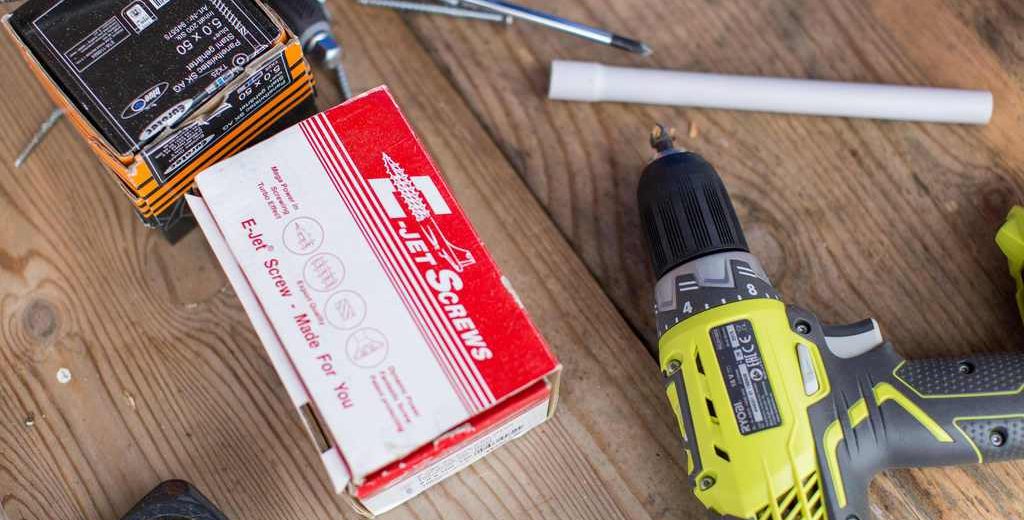Can You Really Save Money with DIY Solar Panels?

Why DIY solar panels could be tempting.
Now that we can all just search the internet for wholesale solar panel prices, there is an understandable temptation to think that we could save big on our dream solar installation, if we could just do it as a cheap solar DIY (Do it Yourself) project.
Intuitively it makes sense that DIY solar panels would be cheaper. We already know that DIY is a cheaper way to do many other projects around the house from tiling a floor to building a deck. So it is tempting to go down this same path with solar when you decide to go solar.
Many sites offer whole solar panel kits nowadays, with what looks like good quality racking and inverters to round out a purchase of solar panels at $2 a Watt and under. That could mean saving $10,000 on a 5 kW solar system if an installer in your area charges $4 a watt to install.
Some are even less. For example, GoGreenSolar offers a 2kW DIY solar panel kit with microinverters for $49.99 a month (that’s with $0-down financing. Full cost: $4671.60).
Buying diy solar panels at Home Depot – not really DIY
You can also pick up a solar system at Home Depot, but they actually do offer an installation service as part of the deal, similar to if you buy a kitchen at IKEA, so it is more of a marketing difference.
You might imagine that you just pick up your panels at the store and then pop them up yourself, but what might look like buying panels at Home Depot is actually just like contacting any other solar installer to do the job. That is because Home Depot’s solar is not actually DIY, but more just giving a solar installation company and in-store consumer friendly interface.
You can talk to an expert in the store, and order your installation. Just like if you order blinds from Home Depot and expect that someone will come to your home and measure. Home Depot has simply expanded those sorts of familiar custom home decorating services to solar. From a marketing point of view, this makes sense as familiarity does reduce customers fear of the unknown.
If you are like many people, when you walk into a store and ask to speak to the solar salesperson, you feel you have charge of the situation.
What if I buy DIY solar panels and hire an installer?
But another way to go semi-DIY that could make sense from a cost-cutting POV would be to buy the panels at wholesale yourself – and then hire an experienced installer to handle the permitting and installation. With the fast dropping prices of even reputable panels, this is an option that many will find tempting. You are going to be smart and pay a licensed contractor to install them.
So now the question is how much the solar installer will charge for the solar electricity installation including the permitting.
But here is the problem with that:
What you save by ordering your own cheap solar panels could just wind up in your installer’s pocket.
If a licensed, experienced installer is now in a position where he is now not making any margin on equipment, this “cutting out the middleman” strategy might actually backfire badly, because he could compensate by charging a higher price for the remaining work that he must still do, to make up his loss.
An experienced and licensed solar electrician will charge from $3,500 to $7,000 to install a 5 or 6 kW system, depending on what state you live in (states with the most solar already will tend to have lower prices as the industry is mature the installers are more efficient and experienced and costs have lowered.
Why not buy wholesale and just DIY?
So, why don’t you buy your cheap panels and install them yourself? Now, you just pop them up there? That is the hope, right?
Nope.
The Cons: why you should use great caution
Here are the big reasons that you should not try to go it alone. Solar power is not your average DIY job, even though it is tempting to try. Here is why it makes sense to let a professional installer do it right. Lots of things can go very badly wrong.
Like electrocution, for starters.
Solar wiring is dangerous: it is very high voltage. Solar electricians don’t just sit down with a one page instruction manual to know how to install your system safely. Nor should you.
Solar electricians first get an engineering or solar electrician’s degree, and are licensed with certification from NABCEP and state licensing showing that they can do a solar installation correctly so that they are safe during the installation – and so you and your home are safe once your solar system begins operating.
Installing solar wiring can be dangerous.
This danger is another reason not to DIY, is that if your house is ever on fire, firefighters might be reluctant to get into contact with what might be a botched job on the safety features.
A professional installation will include the correctly installed ground-level-access fire safety switch that the utility has signed off on, that prevents any danger of electrocution to firefighters if they are up on the panels or the wiring.

(Ok we agree this photo is a little outrageous, but you get the idea).
Nearly all states have this requirement as part of the permitting process, especially the states with the longest history of solar homes. But you might be in a state or a county where yours is the first solar home, and there may be no firefighters’ safety protocol yet.
If you live in one of these lawless states, where you can build anything without any kinds of permits – then DIY solar is very tempting.
Firefighter safety
But ignorance is NOT bliss. In a state like this, your local firefighters might be just as uneducated on risk reduction, if there are no protocols from the ISO or the utilities. So these firefighters might well err on the side of caution and just let your home burn to the ground rather than risk the uncertainty of not knowing if your un-permitted panels were installed correctly to prevent electrocution.
Risk of Financial loss
Not all of the risk of loss is due to physical dangers. Some are risks of financial mistakes.
Voiding the warranties
You may void your panel manufacturer’s 25-year warranty by not having the forms that prove they were professionally inspected to ensure that they were installed correctly. If you ever need to replace any panels, it will be on your dime.
If you don't wire up your system correctly, you won't be getting the full power you paid for, or you could wind up missing out on the subsidies and incentives that your project is eligible for.
If your panels are not wired correctly, it is possible that you will not be getting the full power they are capable of, so your return on investment is not as great.
There are in many case, municipal and county subsidies or rebates, and some of these are handled by the utility. You will be on your own in terms of finding all the city, state and local incentives your system is eligible for.
Only a professional installation firm is familiar with what all of these requirements are in order to qualify for the subsidies and rebates. While a lot of them are common sense, like not being eligible for a solar subsidy if you install your panels on the north side of your house, there are lots of tricky details you could miss.
Most states only pay incentives through a professional solar electrician
Here’s the thing. Nearly all states will require that a licensed contractor sign off on the work in any case, just in order to qualify for state-based solar incentives. This would mean all your work could be for nothing.
Why? Because asking a licensed contractor to sign off on something he didn’t actually do is not going to be slam dunk. Some of the work cannot be seen once it is completed. How can you expect a professional to sign off on internal wiring when he can’t see whether it is correct or not once it is done?
Of course, there are exceptions to the rule that cheap DIY solar panels are a risk
If you yourself are a licensed solar contractor with both the permitting acumen and the electrical expertise (though these two jobs are not usually handled by the same person in a solar company, unless it is the CEO of a startup) then you could well save money by DIY.
Especially if you just moved from a well-regulated state with years of experience to a lawless state with high-priced novice local installers.
Perhaps you just want a couple of panels to power a few items at a cabin or a campsite and nobody is going to bother you about the permits. Maybe the nearest town is 100 miles away. DIY can certainly be tempting.
In that case, just you and or your little cabin will be the ones who get fried if everything all goes tragically wrong.
Related: Building a DIY Battery Bank
